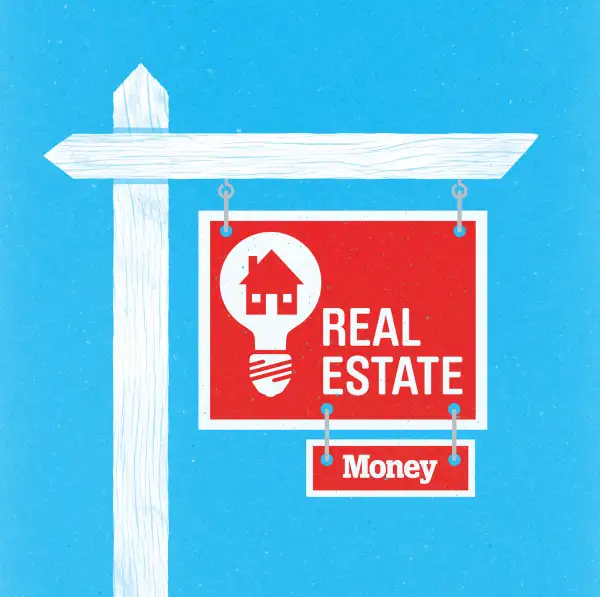How to Sell Your House Without Paying an Agent's Fee

Q: Do we really need a real estate agent to sell our house? -- Peter Koo, Kent, Ohio
Real estate agents typically charge a 4% to 6% commission on the sale price, so selling without an agent could certainly save you big bucks. Even after you pay $1,000 or so for your own online ads, open-house brochures, and a lawn sign, you would still probably clear an extra $14,000 on a $300,000 sale, $24,000 on a $500,000 sale, or $36,500 on a $750,000 sale.
And that's not the only advantage to selling it yourself -- a process often referred to as "for sale by owner," or FSBO (pronounced "fizz-bo"). "You get to control the negotiation, rather than having it filtered through a middleman," says Los Angeles real estate attorney Zachary Schorr.
While a good agent can certainly help with the negotiation process, he or she also has a vested interest in the transaction. "And closing the deal may in some cases be more important to the agent than getting you the absolute best price," Schorr says. If you're a good negotiator and can handle the process without emotion and with clear eyes, you might do better on your own.
You will need to write your own description of the house, take your own photos, and give your own tours to prospective buyers. "If you excel at these things -- or if you're a control freak like me -- you may do a better job than some realtors would," Schorr says.
The Downsides
Make no mistake, though: Working without an agent requires a huge investment of time, knowhow, and effort. You need a wide range of skills, from home staging to salesmanship to negotiating. And you need to be able to completely divorce yourself from the emotions that can arise when a buyer takes a dig at your curb appeal or lowballs the offer on the beloved home where you raised your family.
If these factors don't dissuade you from attempting to sell it yourself, here is how Schorr suggests overcoming the three biggest challenges you'll face:
Limited pool of buyers: Most serious house-hunters are working with a real estate agent; the commission would normally get split between the buyer's and seller's agents. But without a commission on the table, no agent is going to bring clients to see your house. In fact, many shoppers are contractually obligated to purchase their home through their agent -- meaning even someone who finds your house while out on a drive or surfing the Internet may not easily be able to buy it.
If you don't get any offers, Schorr suggests a compromise solution: State in big bold type in your online ads and your lawn sign that you will pay a 2.5% commission to the buyer's agent. You'll only save half as much in commission costs, but you'll get a much bigger pool of potential buyers coming to look at your place.
Bargain hunters: Of course, some buyers may find you even without a buyer's agent. "If you have a great house, in a sought-after neighborhood, and you're on a busy road where you'll get a lot of visibility, then you might do fine working with only the unsigned homebuyers who discover your house on their own," says Schorr. If you've got a charmer with a great kitchen in an affordable price range, they'll find it online no matter how far off the beaten path you are.
The trouble is that those buyers may seek to discount the purchase price: Because they know there are no agents involved, they may feel that they should benefit as well.
How should you handle that? It depends. If you're in a great house that sells itself, stick to your target price. But if you're thrilled to get an offer because you can't stand showing the house anymore, split the commission savings and make a deal.
Lack of advice or tools: You may miss an agent's help throughout the process, starting with when you set a listing price. Online price calculators may not be sufficient to determine the fair market value of your home because they use completed sales, which tend to lag the market by a few months. Also, the algorithms don't necessarily account for factors like curb appeal, landscaping, recent renovations, or school district lines.
A smarter idea is to hire an appraiser to value your house, likely for around $300 to $500.
You may also want a lawyer to produce and review contract documents; some states actually require you to hire one. Although you can find much of the paperwork online, Schorr says, "you need to tailor it to your deal -- and the way you fill it out is just as important as what the boilerplate language says." You'll probably pay $1,000 to $3,000, depending on the cost of living in your area, but you'll get an experienced pro who's in your corner and can make sure the deal gets done right.
Obviously, these solutions all can eat into your sell-it-yourself savings. So try going it on your own for several months.
If your house gets lots of attention and you get good offers, stay the course and be prepared to give up a little of your savings to close the deal. But if the process drags on without any real bites, hire an agent. You've lost nothing but time, and you'll enter the agreement with a far better understanding of how it works and how to get the most from your agent.
You Might Also Like:
Will I Pay Income Taxes on the Sale of My Home?
What Renovations Will Pay Off When I Sell?
If You Want to Sell Your House This Year, Start Doing These Things Now
